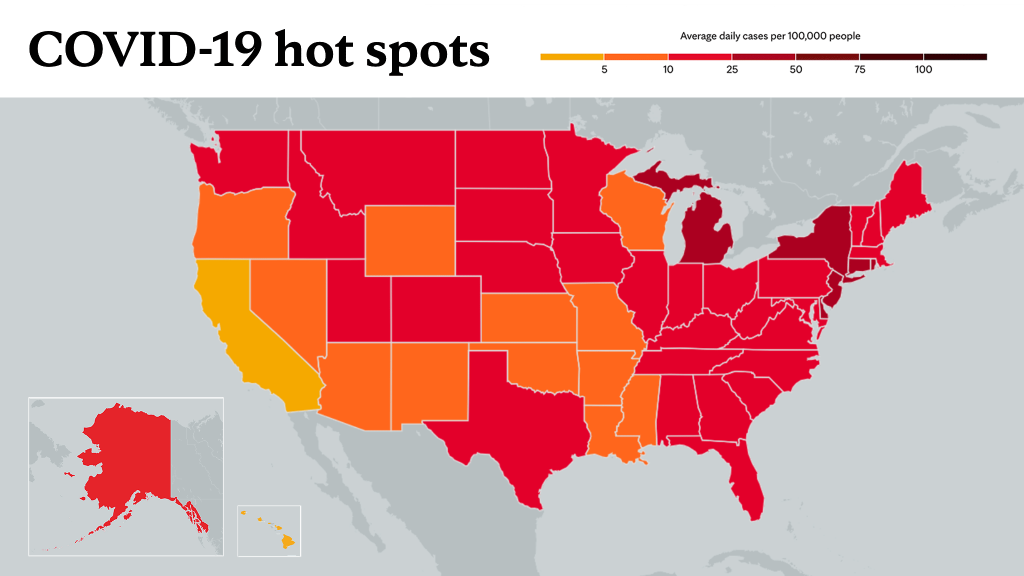
A recent data review by the Advisory Committee on Immunization Practices shows that over 30,000 women who are pregnant have been safely vaccinated for COVID-19. The preliminary safety study, which took place between December 2020 and January 2021, compared women who were pregnant and not pregnant, and who received the Pfizer or Moderna COVID-19 vaccines.
The advisory committee found that one day after vaccination, local reactions in both study groups were similar. In nearly all cases, no significant differences in reactions were experienced, such as localized pain, redness, fatigue, headache or fever.
Women who are pregnant and participate in V-Safe ― a Centers for Disease Control and Prevention safety monitoring program following COVID-19 vaccination ― are being followed at these intervals to monitor for longer-term adverse effects:
- Once per trimester.
- After delivery.
- When the infant is 3 months old.
"Now we have some data that shows they haven't had any increased risk of bad outcomes from their pregnancies. Their babies have been just as healthy as their counterparts who weren't vaccinated," says Dr. Melanie Swift, co-chair of Mayo Clinic's COVID-19 Vaccine Allocation and Distribution Work Group.
Watch: Dr. Melanie Swift discusses COVID-19 vaccination and pregnancy.
Journalists: Broadcast-quality sound bites with Dr. Swift are available in the downloads at the end of the post. Please courtesy: "Melanie Swift, M.D./COVID-19 Vaccine Allocation and Distribution/Mayo Clinic."
Approximately 2,000 pregnant patients have been enrolled in the V-Safe monitoring program and nearly 300 of those patients have completed pregnancies to date. Pregnancy outcomes, such as miscarriage, stillbirth, pregnancy complications and infant outcomes, among participants are no different than general rates in women who are pregnant and have not been vaccinated for COVID-19.
"Pregnant women are at increased risk for bad outcomes when they get COVID-19. And even if they're healthy, the pregnancy itself makes them susceptible to some of the complications of COVID-19. So pregnant women are more likely to have severe COVID-19 and more likely to be hospitalized," says Dr. Swift. "And any severe illness in pregnancy increases the risk to the outcome of the pregnancy. So that's one reason — despite the lack of controlled trials in pregnant women — why experts who take care of pregnant women do encourage them to be vaccinated because they really want to protect pregnant women from having these severe outcomes from COVID-19."
Researchers are determining if pregnant women who are vaccinated for COVID-19 can transfer immunity to their unborn babies.
"There are some early signs from studies that have been conducted that are small, that show those antibodies do get transferred across the placenta to the baby," says Dr. Swift. "Pfizer is enrolling about 4,000 women in a large study, looking at the immunity that babies get when they're too young to be vaccinated. Could they still get enough benefit from their mother being vaccinated to protect them from COVID-19 in infancy? It's still a question that's being answered, and there's some very promising early results."
Dr. Swift recommends that pregnant women talk to their OB-GYN or other health care provider to discuss the pros and cons of being vaccinated for COVID-19. Mayo Clinic continues to follow the guidelines of The American College of Obstetricians and Gynecologists, and the Society for Maternal-Fetal Medicine, when caring for patients who are pregnant.
____________________________________________
For the safety of its patients, staff and visitors, Mayo Clinic has strict masking policies in place. Anyone shown without a mask was either recorded prior to COVID-19 or recorded in a nonpatient care area where social distancing and other safety protocols were followed.
Information in this post was accurate at the time of its posting. Due to the fluid nature of the COVID-19 pandemic, scientific understanding, along with guidelines and recommendations, may have changed since the original publication date.
For more information and all your COVID-19 coverage, go to the Mayo Clinic News Network and mayoclinic.org.
Learn more about tracking COVID-19 and COVID-19 trends.








